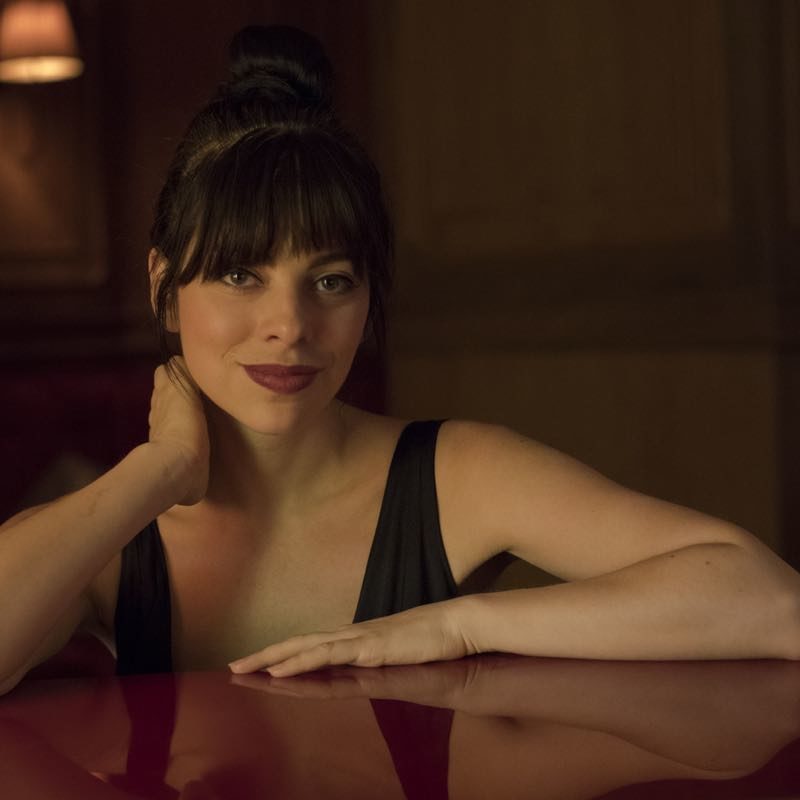An Interview with Krysta Rodriguez
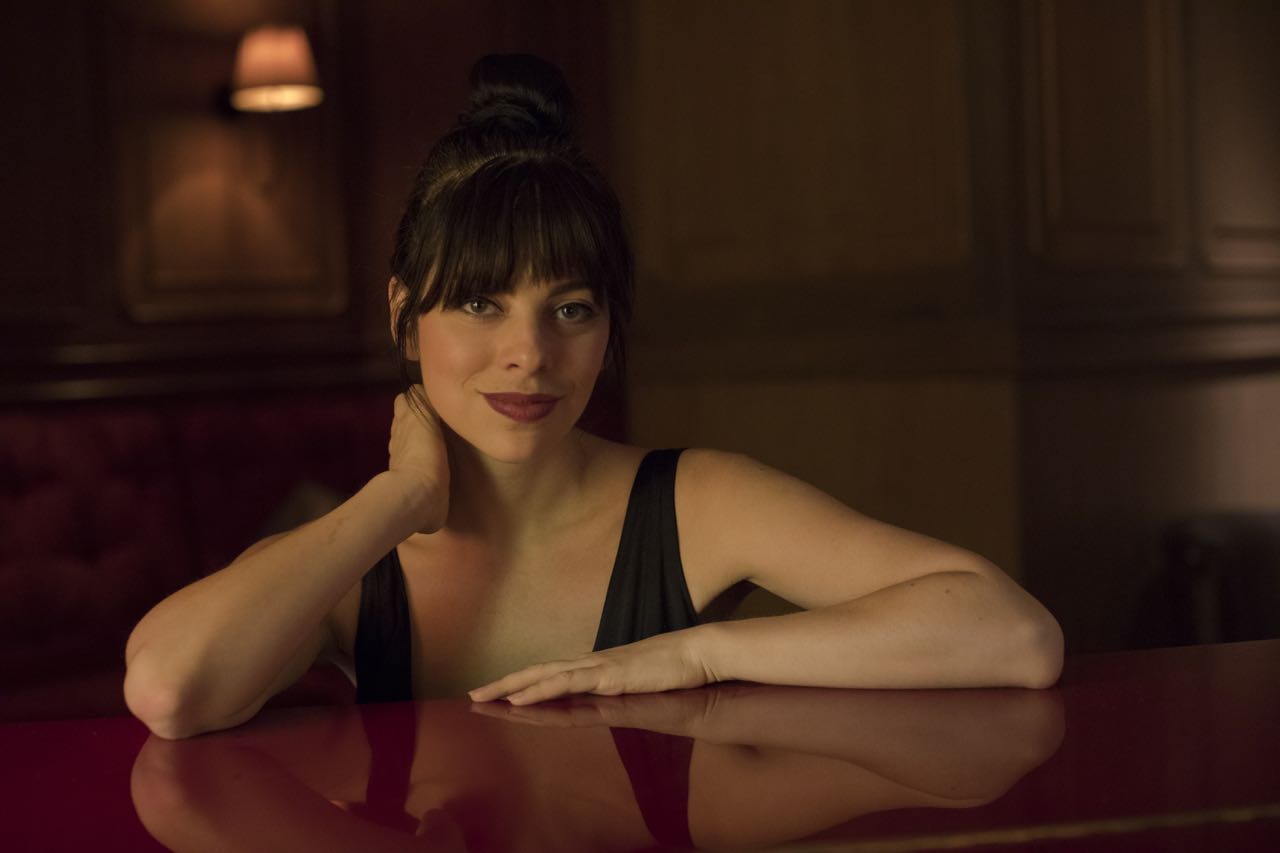
Written by Victoria Myers
Photography by Jacqueline Harriet
November 14th, 2017
In WP Theater’s newest production, What We’re Up Against written by Theresa Rebeck and directed by Adrienne Campbell-Holt, Krysta Rodriguez plays a young architect trying to get ahead in her field while dealing with sexism from her male colleagues and the tricky gender dynamic with the only other woman at the firm. The play, which in light of the wave of sexual harassment stories has been called extremely timely by people who have not otherwise been paying attention to the ongoing struggles of women in the workplace, marks Krysta’s return to the New York stage. Her Broadway credits include First Date, The Addams Family, and Spring Awakening. We recently sat down with Krysta to discuss what drew her the play, gender dynamics, roles for women, advocating for herself, and more.
When you got the script, what first attracted you to the play? Was it the role? Was it the themes of the play?
When I first got the script, all of the information that I had was that Theresa had written it and that Adrienne was going to direct it, and those were already pluses in my book. So I got the script and I scrolled to my first scene, because I’m not in the first scene, just to see the vibe. I didn’t even know where this play took place. And my first line was a curse word, and my second line was an even worse curse word, and I said, “Yes, I’m going to take it.” So that was really what drew me to it: the idea that this woman had high stakes, she was going through something, and she was expressing it in a way that I don’t think women get to express themselves in a lot of pop culture. I was instantly drawn to it, and I said yes. And then when I read it, I was even more excited to tackle these themes as to what is going on now, what was going on then.
When I read the script, they had attempted to update it and put it in present day. So I didn’t know that it had been written in ’92, and that it was going to take place in then, because that’s not what they had decided yet. So it felt even more ripped from the headlines and super relevant. Then to find out that it was written so long ago was even more impressive.
What about your character did you use as your jumping in point, in terms of how you wanted to approach the role and play her?
Well, it’s super relatable to me—the whole show is, and particularly this role. I think it’s easier to be a woman playing a woman who’s going through it than it would be for maybe some of the men who have to embody these horrible men that they’re playing. So it was easy for me to draw on frustration. At the first rehearsal, Adrienne asked us to talk about a time when we wanted to work and couldn’t, and everybody had multiple stories of that. It’s really easy to draw on these experiences, especially being an actor, when you want to work and you can’t. That’s really the theme that’s the crux of the show, that’s the core of Eliza, that she just wants to be included and isn’t. I think everybody can relate to that. So that was really the jumping off point: the amalgamation of all the rejection and bullshit we’ve had to put up with as women in an industry, as actors, and as all the other things that we all have to be fighting against.
Did you find, in rehearsal or in performance, that you had to find a balance between making sure that people weren’t gravitating too much to the themes and not really going with the specific arcs of the characters?
I think it was especially interesting when we were in rehearsal and all the stuff started coming out about Harvey Weinstein, and about all these other people and all these allegations, and all these women stepping forward. There was somewhat of a feeling that our show was supposed to be happening during this era, but it’s not about that. It’s not about sexual harassment; it’s not about feeling that predatory nature. So we really wanted to make sure we weren’t taking on what was going on in the world and being like, “Oh yeah, that’s part of our story too.” It’s not. Our story is very specifically about the perceptions of women in positions of power and the ways that men in power can keep women at bay. I think that was a really important story to tell. And I think that also, when I read it, as you always have to do, you have sympathy for your own character. You believe your own character. I tracked her story arc saying, “Yeah, she’s right. She should have done these things. She was at the end of her rope, she needed to stoop to these levels.” But then, once all the other actors came in and we started really diving into all their reasons and sympathy that you have for them, it started to really become a three-dimensional, complicated, and not very resolvable story, which is way more compelling.
With everything going on now, it almost becomes a version of not playing the end of the play at the beginning.
Or just not play that anyone is the hero. Eliza is not a heroine for our time. She’s a cautionary tale, as well, as to what can happen in these situations. So I think it was really important for us to not laud some characters and fault others, but to put equal fault and equal sympathy on every character.
When you’re doing a play that’s so much about gender dynamics, did you all talk in rehearsal about how certain lines coming from women are going to be heard?
We were very fortunate to have Theresa in the room, and because this is the New York debut of the show, we were allowed to have a lot of living and breathing input into what the show was about. There were just a few times where it didn’t feel authentic for what the women were saying, or how the men were interacting with the women, and we were able to adjust those things. There were some interactions with [the character of] Janice that I felt were unnecessarily cruel or didn’t really help move the story forward. Also, the character of Janice initially was maybe a little bit more inept at her job, and as we did the research and talked to more people in the architecture field, we realized that you still have to have eight years of schooling to even get in the building. If in 1992 a woman is even in the building, she deserved to be there. So we ticked up the competence of that character, which made more dynamics between Eliza and Janice, which was really exciting. Then we had a little bit of toying of a romantic subplot that we just didn’t feel was earned or necessary—especially in staying away from the realm of what’s going on right now and not trying to tap into that, but to tap into what we wanted to tell. And so we got to sort of adjust those things, and that was really great.
As an actor, do you enjoy being able to be so much a part of the development process of a piece?
Yes. It’s really the only way to do it, as far as feeling the best about what you’re doing. And especially to have a team like we had. Theresa and Adrienne were so collaborative and so trusting of us, and we were trusting of them. It’s also a different dynamic to have almost exclusively women behind the table. That’s something that you don’t see almost anywhere. To have a woman director, woman writer, women stage managers, women set designers, women costume designers. It was really an interesting dynamic. I haven’t experienced it before, so I can’t speak to it [in general], but it felt somewhat more collaborative, and less interested in a struggle for power, even if it’s a small dynamic that you don’t even notice. It just felt more like a communal experience, which I really enjoyed.
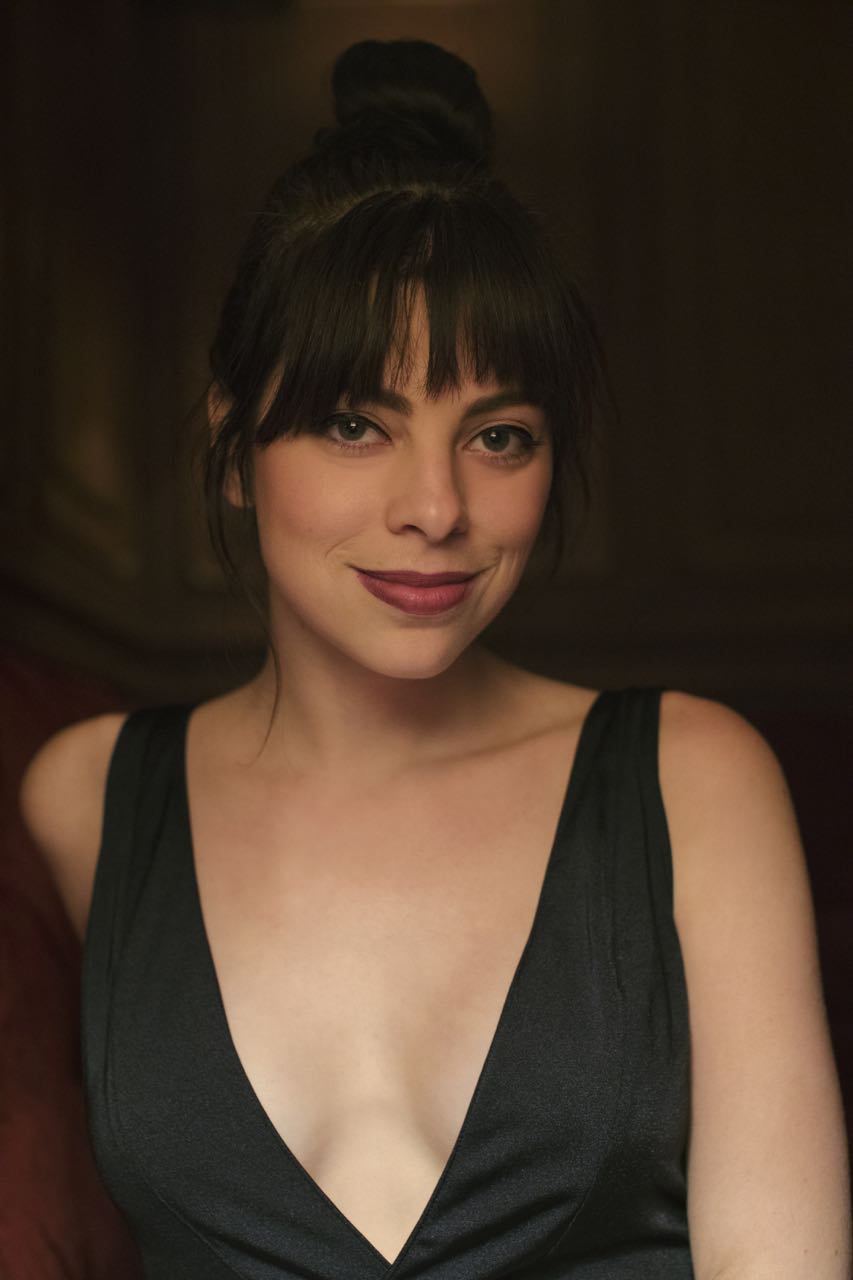
You touched on the dynamics between the two female characters in the play. I was wondering if you could talk a little more about how that developed, because it is such a complicated dynamic.
It’s very complicated. There’s a moment at the end of the show that’s very cathartic for Janice’s character, which was in the play, but then we took out because Theresa’s very sensitive to actors or characters in the show having too much self-awareness, which I think is really smart. It felt a little bit like Janice knew exactly what to say at the exact right moment. So we had it out for a while, but then we felt like we really needed that moment, so we put it back in. It’s basically this moment of realizing that, while Janice isn’t as ambitious as Eliza is and isn’t as eager to jump into the world of the men, she paved the way for her. And as time goes on, I, as the character Eliza, don’t respect these older women, don’t think that they have the drive or have what it takes. So, to acknowledge that she came first, that I couldn’t exist without her, I think is a really special moment.
On top of that, Janice behaves just as badly as everybody else. It really touches on the idea of women not supporting women, of women adding to this friction that men can then dismiss as women not being suited for these environments. And so the more that we can have empathy for all of the characters in the show, especially the two women, and understand each of their points of view, the more we can maybe chip away at that dynamic.
There’s so much external politics around that subject in terms of the audience and their assumptions and what they bring to watching that type of dynamic.
I think that there’s this great catharsis with Eliza, where it seems like Eliza’s going to get her due, and you’ve been tracking her as the obvious character to be shat upon, that’s being held back, that’s being oppressed. And so, when I finally claw my way into a part of power, it’s really exciting, and the audience gets excited, they’re very happy, and you think, “Okay, the show’s going to be over, she got what she wanted.” We all felt that need to watch that underdog succeed. And then the entire thing flips on its head and you realize that literally every person in the show has just completely disregarded Janice as a person, as a force at all. I get to have that experience of the high, the exultation of victory, and then just the aching of what I’ve done, and knowing that she’s about to feel exactly what I have felt, and that it didn’t solve anything. I think the audience gets to feel that too, which I think is so important, because if we had just ended with me succeeding, we would not be telling a message that is useful.
Did you have to also put a lot thought into how you get the audience to go on the specific journey of the play?
It is a little bit interesting, because the first scene is two men talking to each other. Theresa told us that she wrote that scene for a short play festival about women, and she thought, wouldn’t it be funny to write two men talking about women, just to show that dynamic, which is so different than women telling their own stories. Then she decided to expand and learn all these characters. One of the things we noticed was that it is uncomfortable, in this day and age, to hear men speak about women that way, which is a victory in our culture, but a challenge in our play. One of the first lines is, “Women are always just a complete fucking nightmare.” I mean, it’ll get a laugh, because you come into this show thinking you’re about to see a feminist manifesto, and that’s what you’re going to hear right off the bat. And if people think that that’s funny, then we’re on a good path for this show to take you on the ups and downs and the dark humor of it. But there is definitely a sense of, “Is this something that we should even be participating in?” So I think that we’ve tried to strike that balance, and I think the actors are just so beautifully able to ride that line.
You mentioned audiences coming in expecting to see a feminist manifesto. Did that feel like a certain type of pressure in terms of audience expectation?
Lisa McNulty, the artistic director [of WP Theater], said, “We are the Women’s Project. Our goal is to feature women and stories about women, from women,” and they also try very hard to not just make feminist stories, but that it’s just a place where women can tell stories. It doesn’t have to be their stories. And she’s like, “This is the thing that people think the Women’s Project is putting on all the time, but it’s not. But right now it is.” And I think people are excited to see that. I think people want to see a woman’s story, and women doing it in the way that I feel is relatable. Not somebody’s girlfriend, not somebody’s sidekick, not anybody’s trophy, but a really badly behaving, earnest, trying-her-best woman. I think people want to see that.
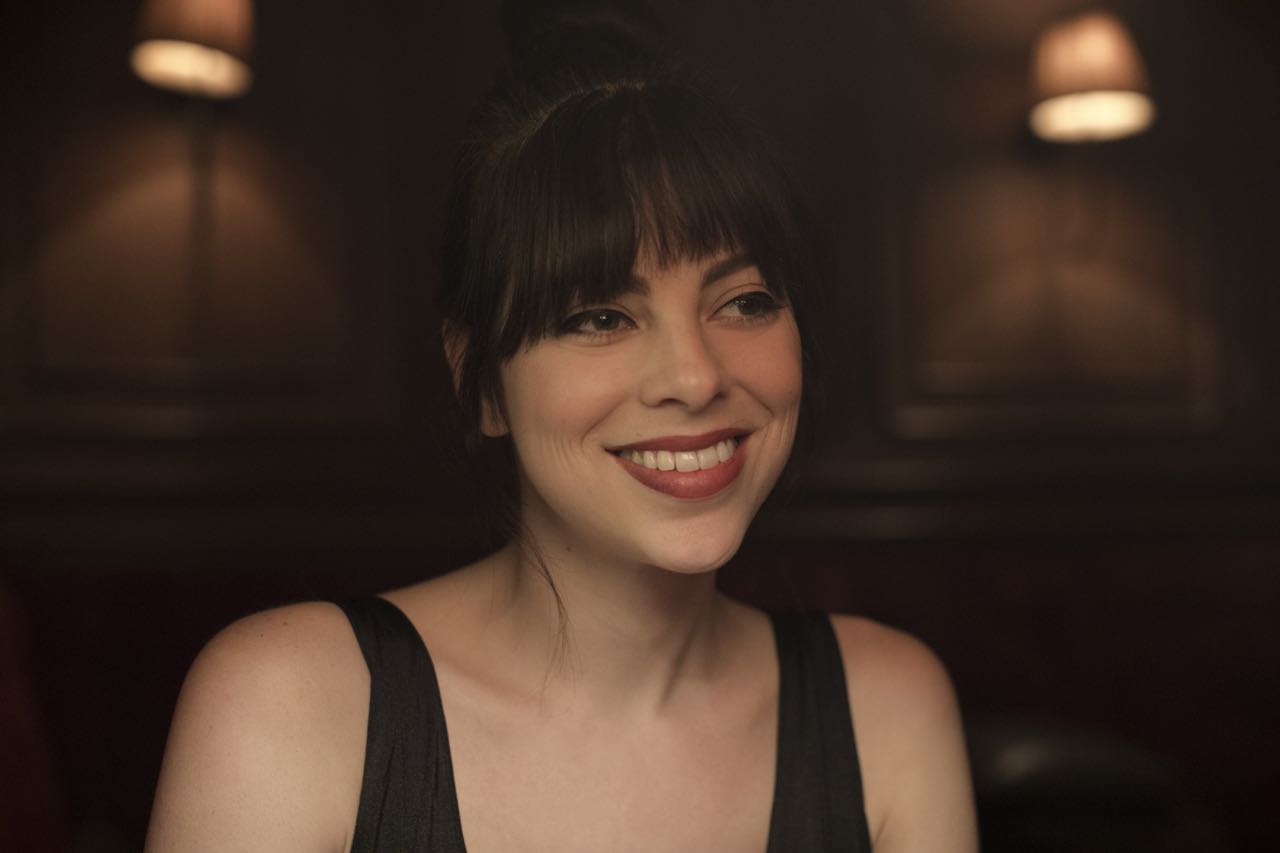
One of the things that I really always ask actresses about, and especially anyone who started in the business quite young, is how you manage to continue developing as a person and as an artist when you’re in a business that treats you as a commodity and where there is typecasting?
I don’t even know how much of it is conscious. It’s so rare, really just mathematically, to ever get a job, so that when you do, especially in the early parts of your career, you’re just taking things to further yourself. You rarely get the opportunity to take something because it fulfills you, or because it represents where you are as a person in that moment.
Fortunately, I feel like we’re at least aware that as a woman gets older her stories get more compelling. That’s at least how I feel as a person. What I’ve been through in my life in the last few years, and things that have happened, I feel like a different person. There have been opportunities for the same sort of things that I have always done that have come up, and I just don’t feel like that same person. I don’t feel like that same actress. I don’t feel like anything about that is still where I even feel like I have any business inhabiting. So I’ve reached a certain point where you kind of have to say no, which is very hard, and you just start saying no to things that don’t feel authentic.
I feel fortunate that I was able to build up enough experience to be able to have that moment in my life. And then this play came along, and I am just so grateful, and I feel like this is exactly the intersection of life and art and challenge [that I want]. And I feel like it’s given me some strength to keep saying yes to these sorts of things, and a little bit of encouragement to say, “This is the path that you can go on.” So basically, it’s trying to exercise the little bit of control that you have, and when you do, hopefully you get returns from it.
When you were younger, was it hard to be a professional in the business at the age when most people are still figuring out who they are?
I think for me, it was actually really great, because I never felt like I had to figure out who I was. I wanted to be in theatre since I was six. I felt sort of in awe of the people that didn’t know exactly what they wanted to do and weren’t just laying out the process. So in my 20s and in my early years, it was, theoretically, very systematic. It was: get started here, move to the next thing here. I did five shows in a row, all overlapping. It was just like, I didn’t really have time to decide, “Is this who I am? Is this what I want to do?” I was just doing it. That moment, the identity crisis if you will, came when I turned 30, and the career started changing and my life started changing. That’s when I had to kind of decide and realize that I didn’t really have time to do the things that were just jobs anymore. I felt lucky to be doing it young, and I felt like that was actually the easy way to navigate my 20s. It was harder later on.
You mentioned the lack of control. Is that hard?
Oh my God. I don’t know how I ended up in this business. The two parts of my personality, the control freak and the artist, are so diametrically opposed. It’s the hardest thing about it. In theatre, you have a modicum of control, because you get to show your performance every night. In television and in film, an editor shows your performance. That was really hard for me in the beginning, to understand that I could carefully curate what I thought was going to work, and they could take a reaction from three lines before and put it in, and create whatever story they wanted to tell, or cut four pages out of a scene, and I, knowing what the whole scene is supposed to be, is like, “This doesn’t even make any sense. You cut out the whole thing.” And then realizing that the audience doesn’t even know that there was that other thing, so it makes sense to them. And how little of it has to do with the actor. That’s the thing: people watching are very much like, “Oh, I love their performance. I love this actor.” It’s actor-focused, and the awards go to the actors. But really, in truth, it’s so little about the actor when you’re making it. It’s really about the producers. It’s about the demographics. It’s about the ratings. It’s about the advertisers. It’s about the time that you need to put into a scene. So it’s a weird thing to feel like getting a lot of the glory or the damnation with so little control.
You mentioned before the ability to say no. Have you found that there’s been an issue finding female roles that are appealing to you, particularly at this stage in your life?
I think there comes a point—and I think it’s where we are as a culture and it’s where I am as a woman in my particular life, at my particular age, with my particular experience—where these things just trigger you now. These character breakdowns for women just sort of don’t sit right. I’m not necessarily in a position where I can be turning down things like this, but I’m also in a position where I know that saying yes to an audition can lead to seven years on a show that you didn’t want to be on. So you really have to be careful about just jumping at the chance of being wanted, and you really have to know, “Is this actually what I want?” You have to have enough self-worth to know, “Is this what I want to do? Is this how I want to spend my time?”
I started dismissing parts where the first description was “hot,” or, “doesn’t know how pretty she is.” If anything even referenced their appearance, I didn’t even want to really read further, because I know that she’s not going to be interesting to anybody. She’s a foil for a man. And almost no male descriptors are about what they look like. Literally, almost none of them. I have a friend of mine who’s a very accomplished actor, and he and I help each other with our self-tapes when we have to run lines. We’re like our acting buddies. He will read me his breakdowns, and there’ll be paragraphs of complicated descriptions of them, backstories of their relationships with their father, and insights into their mental capacity. And he’ll read my breakdown and it’ll be, “super hot, non-intimidating”, or something. And that’s it. And it’s just so clear when you put them side-by-side.
So that was something that I started being really sensitive to. Also, really sensitive to if I felt like the writers were excited to write for this woman. Because so many writers are men, they don’t think they know how to write for women, so they just write responses, or eye rolls—like, “Oh, that guy. What a doofus. But I’m going to date him anyway.” That sort of dynamic is just tired. It’s not fun to play. And the men get to act so rambunctious, and you forgive them for acting badly because there’s a woman there who lets it slide. So the audience can let it slide.
Conversely, I remember an article coming out a few years ago during the height of Breaking Bad and Mad Men about how hated the wives are in the shows because they’re buzzkills. And it’s like, “Yeah, that woman. What a pain in the ass. She doesn’t want her husband selling meth.” You realize how ridiculous it is that when these men are behaving badly, these women are collateral damage. Like I said in the beginning, it’s part of why as soon as I saw that my first words [of this play] were, “Motherfucker. Cocksucker,” I went, “Yeah, this way I get to do it,” and I don’t have to roll my eyes at the men, or be smarter than the men but not say it. I just get to be messy, and everyone just has to accept that.
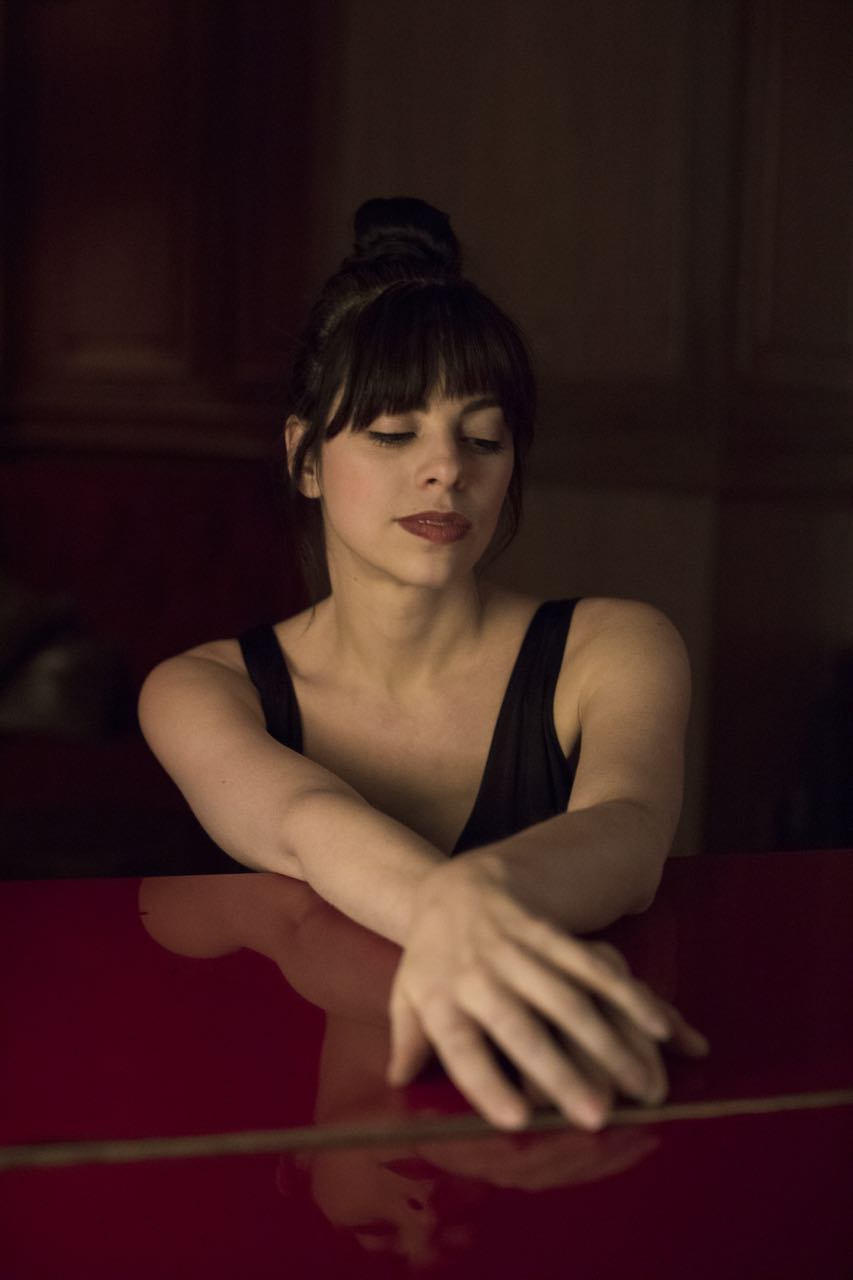
Going along with the idea of saying no to things, and also just looking at everything that’s going on in the world and in the entertainment industry, do you feel like it’s been a process for you in terms of not only learning how to say yes or no to roles, but also to advocate for yourself in the industry? Or to be able to say, “I don’t think that’s funny,” or “That makes me uncomfortable”?
I don’t know if I’ve ever felt like I was allowed to speak out that way. I don’t know if it’s just the specific circumstances that I’m in, or the personality that I have that doesn’t want to rock the boat, but sometimes I can’t help but need to know the answer to something. But that’s what I felt was so different about this experience [in rehearsal], because what we’re talking about is so directly what we’re dealing with, I felt like everyone was really sensitive around that and helpful.
Basically, what our show is about is, there’s a problem, and the two women decide to handle it differently. One decides to speak out and advocate for herself and say, “This is what I deserve. This is what I need. And I need the answer now as to why this is going on this way.” She’s immediately villainized—immediately, company-wide. And the other woman, who’s been there for six years, and plays ball and keeps her mouth shut, might still be there, but she’s not doing the work she deserves, she’s not being treated in the way she deserves, and she’s still waiting for her ship to come in, and it never will. It’s a complicated issue as to who’s right and who’s wrong or what’s more effective.
I feel like I spent a lot of time in my early career trying to be like Eliza, and just trying to be direct, trying to be honest, and being told, “Don’t be hard to work with, but also act like you’ve been trained enough to be able to ask these questions,” and very quickly realizing nobody wants those questions. Nobody wants to be asked questions about what they’re doing. There have been times when I have said, “I don’t find this funny. I find this predatory. I find this uncomfortable. I don’t want to say this. I don’t want to not respond to this.” I was working on a job where it was thought that it was very funny that a romantic relationship would come up between me and a male character where he was in love with me and I was not interested in him, and the more that I said no, the more he persisted. It was right around the time of the election, and I just felt like that was not the story I wanted to be a part of. And I said it, and it was not met with any sympathy [and instead] “Oh, it’s funny though. Don’t worry. It doesn’t come across that way.”
I went through a time where I wanted to speak up. I went through, then, a time where I had to keep my mouth shut. Where I felt like it was not helpful. And now I feel like it’s time to speak up again. I feel like we’re allowed to speak up a little bit more, and hopefully this experience of being told, “You’re allowed to speak up,” will empower me in the future. But it really, in almost every industry and almost every job, a woman saying she’s uncomfortable with something makes her a liability, makes her “one of those women.” As soon as a woman starts to assert power, it has to be squashed.
What do you think the theatre community can do to make things better for women going forward?
We talk about the 99% versus the 1% as far as wealth in this country. I don’t think people know that all of your entertainment comes from three men sitting behind a desk. I don’t think people realize that. All of your television shows come from three big networks that have bought all of the smaller networks, and are just deciding what you get to watch and what you don’t. On Broadway, it’s a little more diverse because it takes more people. But still, it’s a lot of producers, people in higher power with more money deciding what you get to watch as entertainment. These people, we need them. We need them in the industry because artists need structure in order to put anything out there to be seen. So I’m grateful for them. But the majority of them are being dictated by what will sell. Unless we vote with our pocketbooks, they will not change their ways. So when there is a show about women, made by women, for women, or when there is a show that is entirely created, designed, portrayed with people of color, people with disabilities, people with less visibility in this world, and we support that, and we as consumers put our money there, they can’t deny that. That’s where I feel really strongly that yes, we can be creating these things and yes, we can be fostering that talent, and it feels really great to say, “Let’s encourage these people, and get everybody together and write something, and then it’ll take off,” but it only takes off if everyone agrees to support it. It’s a collective thing. It’s not just putting out the content, it’s supporting the content.

